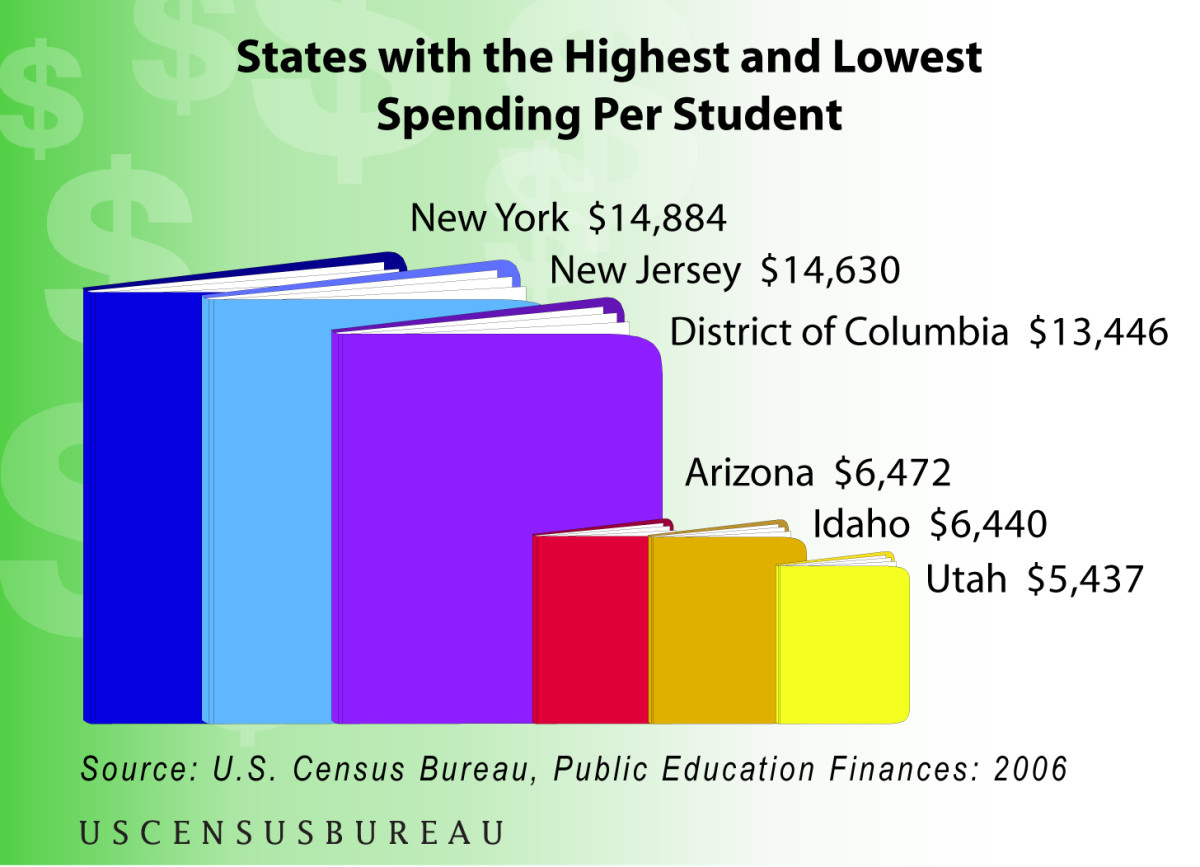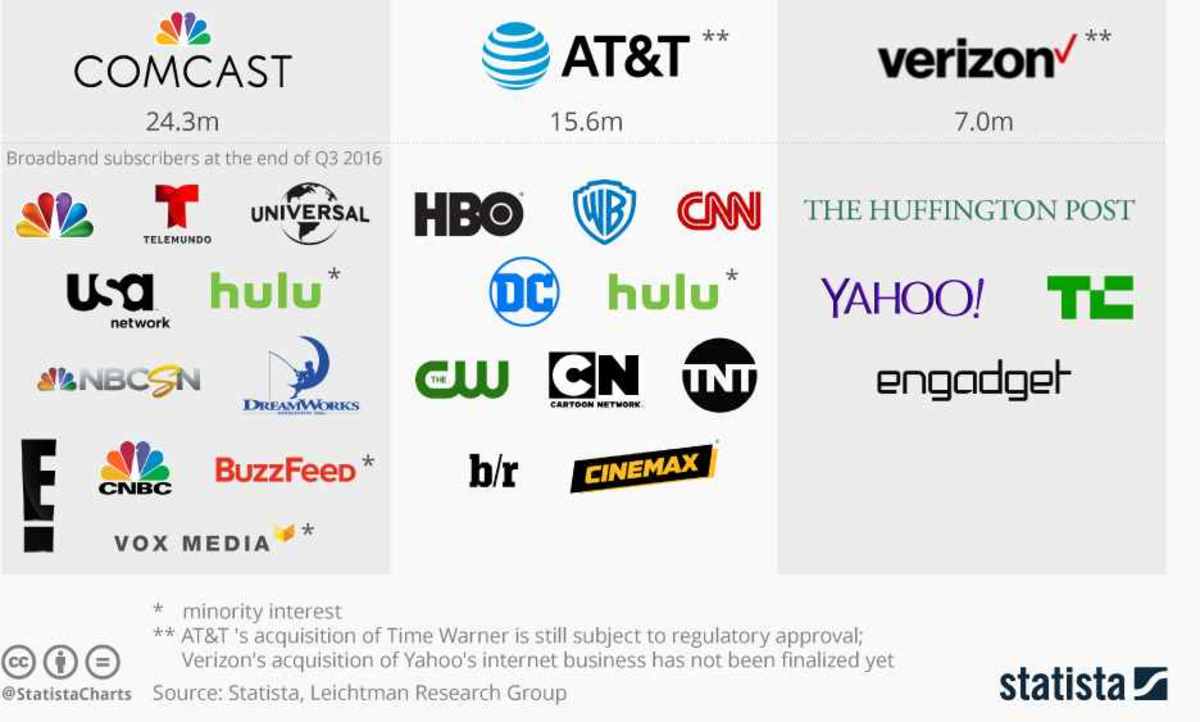Education - Solution 3 - Revamp How Education is Organized in America. [33]
Changing the Organization of Our School System
If there is to be any hope for our country vis-a-vis educating our children, then the control and responsibility of educating our future leaders in industry and government MUST be ripped out of the hands of politicians. The current system, and I think everyone will agree with this statement, simply isn't working. America's kids are in the middle of the pack and falling further behind every year. If anything is going to make America go the way of the Roman Empire, it will be through our inability to properly educate our young. In my opinion, the current system is in a state of moderately controlled anarchy.
We teach our children through a hodgepodge of systems, to name a few:
- Home schooling - which have varying levels of controls over what must be taught and widely varying curricula, what standards must be met, and what oversight is in place to insure those standards are actually met. Quality of instruction varies greatly
- Private secular schools - few in number but under more state control as to cirricula, standards, and oversight. I don't know how variable the quality of instruction varies
- Private religious schools - many in number and also under more state control as to core curricula but not religious curricula which may or may not be in the best interests of national security. I don't know what sort of oversight the state has in ensuring religious schools meet state standards. Quality of instructions is generally higher and is more consistent than other methods of delivery
- Public schools including charter schools and other innovations - the most common and totally under state and some federal control as to curricula and operation. Must meet state, if they have them, and federal standards of learning. Quality of instruction varies widely and is highly correlated with funding and class size.
It is the public schools that I am most concerned about. Many Right-wing Conservatives simply want to "throw the baby out with the bath water" and just do away with the public system altogether and replace it with private religious schools rather than fix the problem. They may not say this directly, but they don't take too much trouble to hide their message either. That said and you agree with part of what they imply, dumping the current system, what do you replace it with?
Well, I have some thoughts on that too, never short on those, it seems. There are three alternatives as I see it, 1) some sort of government bureaucratic system, 2) some sort of secular private run-publicly funded system, or 3) some sort of religiously run-publicly funded system.
I suspect trying to implement number three, a religiously run, but publicly funded school system would run into serious legal and political problems. Even with the current Supreme Court, I don't think it would be upheld. I also have a feeling there would be rioting in the streets if one faction or another felt that public funding was going to flow to religions they didn't like. It would be my thinking that this might be supported by the 20% or so of Americans who identify themselves as Fundamentalists or Evangelicals and actively opposed by70%, We always have that 10% who just don't care.
Choice two, public funding of secular privately run schools, has more traction and might be a viable option although it isn't one that I will spend much time on. You don't have the Constitutional problems as you do with religiously run schools nor the political impracticalities. They certainly can be held accountable to the same standards as the government would hold itself to, which might be a problem with religiously run schools where required curricula may run afoul of religious philosophy.
The problem that I see is the profit motive. It is a cost (to the government) that the government won't generate. A privately run scenario could easily be accommodated in an industrial fund model; it is today. There are contract-types out there that can limit the amount of profit a company can make; cost-plus, to name one. But the key to these types of contracts is getting the contractor to limit costs, because the more costs, the more profit. In my time with the government, we didn't do too good a job at controlling costs (I was on the watchdog side). On the plus-side, theoretically, is that the private sector can be more efficient and effective and, even with profit, cost less than a government option. The answer to that one is sometimes.
As a rule, when contractors replace civil servants on a small scale, costs go up. We saw, and still are seeing, this with the wholesale replacement of the federal workforce with contractors starting in 1993-1994 in the name of "reducing federal spending". Well, as they reduced our numbers, mainly through attrition this time, they didn't reduce the requirements. What was done to get the work done now that there weren't enough federal workers to do it? Hire contractors, of course. They are paid out of a different pot of money than federal workers. Consequently, politicians can still show how they "saved" money while actually spending more. How much more? How about 20% more when the dust settled; I think that is around the number that the Governmental Accountability Office came up with.
By the time I left the Department of Defense in 2008, major damage had been done in the government's ability to oversee, let alone do, critical tasks. We had attritted away our experience and weren't hiring their replacements. We were one-deep in many functional areas and when that person wasn't there, the job simply didn't get done. Crises were poorly responded to because there was no slack left in organizations and not enough money or time to hire contractors to do the work. When I left DOD, the civilian workforce was in a sorry shape but still gamely trying to accomplish the mission.
Off my soapbox. On a large scale, it can make a lot of sense to "contract out" and one of them, I believe is NASA. NASA does very well in contracting large segments of work for the launching and monitoring of their missions. If politicians ever got serious about revamping how we run our schools this is one that should be looked at but only as a possible part of an implementation strategy I outline in the next section.
School Board Fireworks

Changing the State School System Bureaucracy
CHANGING how the system of schools are managed in our country MUST change dramatically if we hope to ever gain control and stop our slide past mediocrity. We must change it fundamentally because the current configuration breeds failure; it is designed to fail in terms of national security.
The first thing that must be discarded is the elected school board! How on earth can you hope to produce properly, consistently education young men and women when you have elected school boards that set the agenda, approve the textbooks, and base the school budget on politics and religion? This election cycle the school board is stacked with Tea Party members and in the next by Progressives. Policies and philosophies change every two to four years. This is not the way to run a railroad! Local control of schools most go. It simply doesn't make sense; it is counter-intuitive if your goal is to have world class education levels across the country. How do you produce students at the same quality level from San Jose, CA and Meridian, MS if the local school board controls most of the operations of the schools in their district? The answer is simple ... you can't!
So what is the first step? Abolish the school board system and expand the State Departments of Educations or their equivalents. Let the professionals run it. Yes, you are still going to have politics involved but it will be at much higher level. Properly set-up and monitored, the rank and file bureaucrats can be shielded from much of the politics. For example, when I was career broadening in the Office of the Secretary of Defense, my boss was a civil servant, his boss was a political appointee Assistant Undersecretary, his boss was another political appointee Undersecretary, and his boss was the Secretary of Defense. In the five years that I operated at that level under both Republican and Democratic administrations was there ever a time that any pressure came down to color my analysis one way or another to support a political point of view.
Below the State Department of Education you already have the school district structure so nothing would have to change there. You would have a clean line of authority running from the school pricipal to whatever the head of the school district might be called to the Chief of the Department of Education. There would be no interference from outside parties that have other agendas other than educating our youth.
The State Department of Education would be charged with ensuring their state public, private, and home school students met the minimum educational standards set by the federal Department of Education plus any additional standards the State may have set, funnelling the federal funding plus any State supplements to the public schools, ensuring public and private infrastructure meet minimum quality and safety standards, etc. In addition, the State Department would consolidate, coordinate, approve and forward the budgets from the several school districts to their federal counterpart. The school districts and schools would largely do what they do today.
Department of Education

Changing the Federal School Bureaucracy
THE second biggest change probably would be the great expansion in size and role of the federal Department of Education. By declaring education a National Security Priority, the standing of education within the federal system is changed. Instead of a function left primarily to the states to manage with relatively little federal involvement, the role of the federal government looms much larger relative the states. You can't say the roles reverse because the states still have a major role to play.
The federal Department of Education assumes four new major responsibilities that it didn't have before: 1) set minimum the curricula with alternatives, 2) set the minimum educational standards, 3) set minimum infrastructure requirements, and 4) provide the minimum funding per student to the states. As with all federal agencies, it will monitor compliance of the state counterparts, write policy and regulations, and other normal administrative functions.
It would be expected that the federal and state departments work closely with each other as well as with the education industry to formulate the various programs that will be needed. Will a concept like this work? Of course it will. We successfully run our national defense somewhat this way with the relationship between federal OSD, Army, Navy, Air Force, Reserves and the State National Guards all of which comprise the Department of Defense. (the Marines are a sub-set of the Navy, by the way). Will it fly politically, it will be a very hard sell because many State's Rightists won't accept the national security argument for fear of losing their State's Right position on this particular topic even though they know they are selling their country down the river for an ideology that has been overcome by events.
Related Links
- K - 12 Education Is A National Security Issue
I firmly believe that the education of American youth, from Kindergarten or 1st grade through 12th grade, is a national security issue and it needs to be treated as such! The dynamics of how we should view... - Education - Solution 1 - Setting Curriculum Standard...
CURRICULUM VECTOR EDUCATIONAL STANDARDS:This is probably the simplest of the reforms that actually could be instituted and it is based on the fact that educating our young is a National Security concern. ... - Education - Solution 1a - Essay on One Aspect of the...
The No Child Left Behind Act passed in the Bush Administration and still being implemented in the Obama one is a sea change in how we approach education. The question has always been, was it the right way. I look into one aspect of the NCLB act with - Education - Solution 2 - Revamp How Education is Fun...
[Does anybody know a synonym for education that begins with an 'F' so I can have a complete alliteration? :-) ] LET me come right out and say it. How America funds education is at the root of many of the... - Education - Solution 4 - Setting Minimum Academic S...
STANDARDS, as they relate to education have gotten a bum rap lately, at least testing to standards. But, you simply cannot get away from standards or the measurement of them if you have any hope of ensuring... - Education - Solution 5 - A More Complete Basic Fundi...
I have written several hubs now on how education of America's youth should be considered a National Security Priority. Given that stature, many changes are required to rise to that calling. In this hub, I offer my thoughts on what those changes ought - Screwed up Priorities
The scores on standardized tests for reading, science in math, conducted by the Program for International Study Assessment (PISA) are in and the results are speaking for themselves. Students from 65 countries... - U.S. Public Education at the Precipice
You may be expecting that this article is going to be another gloom and doom polemic on the dire condition of public education in the United States. That will not be the case here. Public education in the U.S.... - The importance of sex education among the youth
The youth of today is faced with modernization and it has brought a lot of negative consequences in their lives. A good sex education is needed so that the youth can gather their acts together. ... - Free educational websites for children
Free educational websites supporting the school curriculum or homeschooling with useful exercises, information and games. - Using Music Education Techniques in Your Toddler/Pre...
You don't have to be Mozart, John Cougar Mellencamp, or Barney the Dinosaur to effectively combine music education with your preschool story hour presentations. All you really need is a good portable music...
© 2010 Scott Belford








